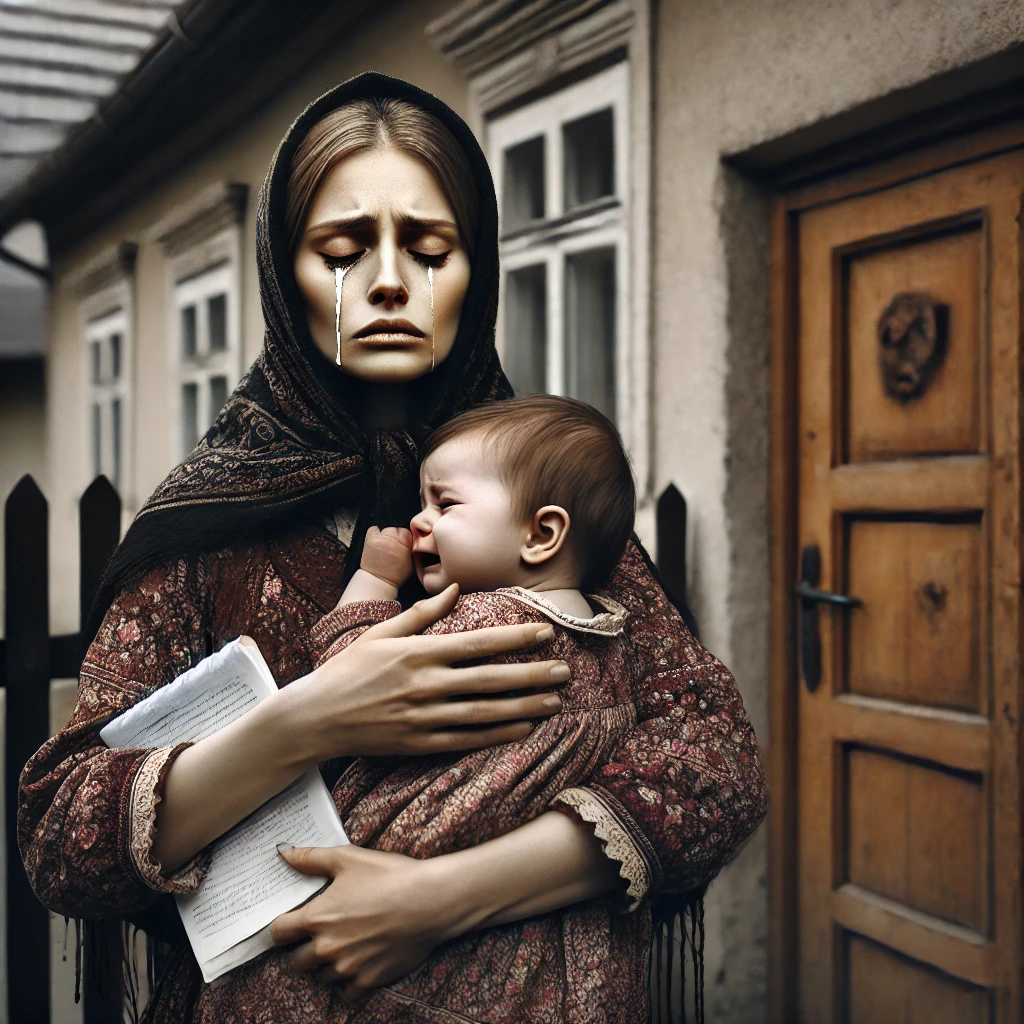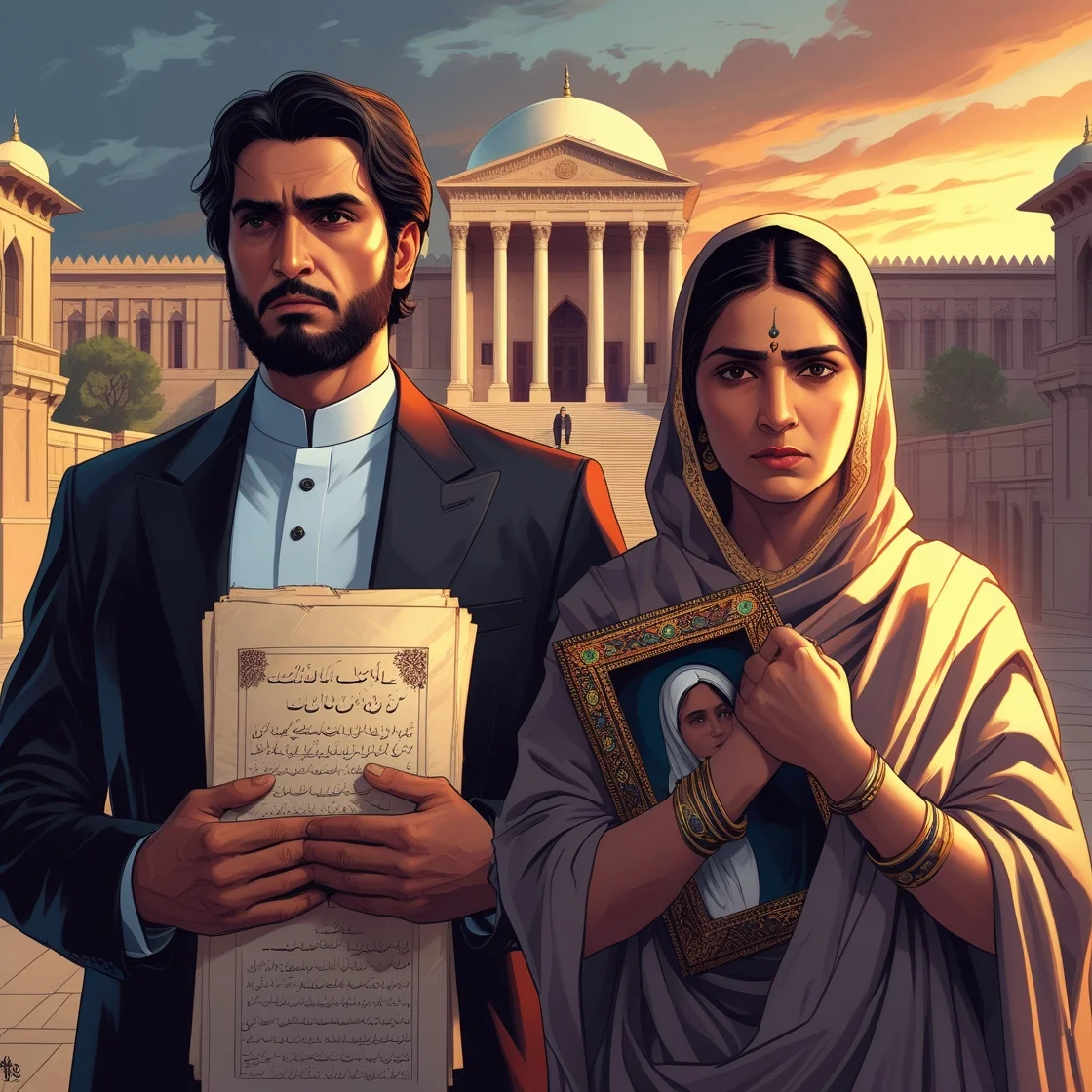
Case of Dowry and Land Dispute: Supreme Court’s Decision and Legal Aspects
Supreme Court Ruling on Dowry and Land Disputes: Legal Perspectives & Justice Explained
Introduction
This is the story of Mrs. Taj Begum and Nasir Ali, also known as Khizr Hayat, who were involved in a legal case over marriage, dowry, and land rights. This account highlights the pursuit of justice through the courts, the complexities of religious and legal rights, and the intricacies of Pakistan’s judicial system. The purpose of this blog is to help every citizen understand the depth of this decision and encourage them to seek justice for their issues through legal avenues.
حق مہر اور زمین کے تنازع کا مقدمہ: سپریم کورٹ کا فیصلہ اور قانونی پہلو
تعارف
یہ کہانی ہے مسز تاج بیگم اور ناصر علی عرف خضر حیات کی، جن کے درمیان شادی، حق مہر، اور زمین کے حق کے تنازع پر ایک مقدمہ چلا۔ اس کہانی میں، عدالت کے ذریعے انصاف کی تلاش، شرعی اور قانونی حقوق کی پیچیدگیاں، اور پاکستانی عدالتی نظام کے قوانین کی پیچیدگی کو بیان کیا گیا ہے۔ اس بلاگ کا مقصد یہ ہے کہ ہر شہری اس فیصلے کی گہرائی کو سمجھے اور اپنی زندگی کے معاملات میں عدالت کے ذریعے انصاف حاصل کرنے کی ہمت پیدا کرے۔
| عدالتی فیصلہ پر اردو بلاگ | |||||
| عدالتی فیصلے کا حوالہ نمبر | 2007SCMR1935 | Dissolution Of Marriage, Khula خلع، تنسیخ نکاح | |||
| کس عدالت نے کیس سنا | سپریم کورٹ آف پاکستان | ||||
| جن جسٹس صاحبان نے کیس سنا | فقیر محمد کھوکھر اور کرامت نذیر بھنڈاری | ||||
| جوابی درخواست گزاران | درخواست گزاران | ||||
| مسز تاج بیگم وغیرہ — مدعا علیہان | بنام | ناصر علی عرف خضر حیات — درخواست گزار | |||
| فیصلہ لکھنے والا جسٹس | فقیر محمد کھوکھر | ||||

Background of the Case: Marriage, Divorce, and Land Dispute
Mrs. Taj Begum and Nasir Ali were married for a long time, but as disagreements intensified, Mrs. Taj Begum filed for divorce in the family court. The court ruled in her favor, with the condition that she would not claim any dowry or land. The petitioner requested the return of 10 acres of land, which his father had given at the time of marriage.
مقدمے کا پس منظر: شادی، خلع، اور زمین کا تنازع
مسز تاج بیگم اور ناصر علی عرف خضر حیات کی شادی ایک طویل عرصے تک قائم رہی، لیکن جب اختلافات شدت اختیار کر گئے، تو مسز تاج بیگم نے خلع کے لیے فیملی کورٹ میں مقدمہ دائر کیا۔ فیملی کورٹ نے ان کے حق میں فیصلہ دیا، لیکن ایک مخصوص شرط کے ساتھ کہ انہیں حق مہر اور زمین وغیرہ کا دعویٰ نہیں کرنا ہوگا۔ مدعا علیہ نے عدالت سے 10 ایکڑ زمین واپس لینے کی درخواست دی، جو ان کے والد نے انہیں شادی کے وقت دی تھی۔
Arguments Presented by the Lawyers
Petitioner’s Lawyer (Nasir Ali’s Lawyer)
The petitioner’s lawyer argued in court that his client’s father had gifted 10 acres of land to his daughter-in-law at the time of the marriage. The lawyer reasoned that this land was given as a token to strengthen the marriage. He asserted that the transfer of the land was tied to the marriage contract and requested the court to return the land as the marriage had now ended.
فریقین کے وکلاء کے دلائل
درخواست گزار کے وکیل (ناصر علی عرف خضر حیات) کے دلائل
درخواست گزار کے وکیل نے عدالت میں موقف اختیار کیا کہ ان کے موکل کے والد نے 10 ایکڑ زمین اپنی بہو کو اس وقت دی تھی جب ان کی شادی ہوئی۔ وکیل نے استدلال کیا کہ یہ زمین ان کے موکل کے والد نے انعام کے طور پر دی تھی اور اس کا مقصد شادی کو مضبوط بنانا تھا۔ انہوں نے کہا کہ زمین کی منتقلی کے معاملے کو نکاح کے معاہدے کے ساتھ جوڑا جانا چاہئے اور عدالت سے اپیل کی کہ زمین واپس دلوائی جائے کیونکہ شادی اب اختتام پذیر ہو چکی ہے۔
Respondent’s Lawyer (Mrs. Taj Begum’s Lawyer)
Mrs. Taj Begum’s lawyer argued that the marriage had ended through divorce and the court had decreed that no claims could be made concerning dowry or land. According to the lawyer, the family court had made the correct decision, and the respondent should not be compelled to return the land. They further stated that the issue of land transfer was beyond the scope of the family court after the divorce and could not be brought up there.
مدعا علیہہ کے وکیل (مسز تاج بیگم) کے دلائل
مسز تاج بیگم کے وکیل نے موقف اختیار کیا کہ شادی کا اختتام خلع کے ذریعے ہو چکا ہے اور عدالت نے حکم دیا تھا کہ حق مہر اور زمین کے معاملے میں کوئی دعویٰ نہیں کیا جا سکتا۔ ان کے مطابق، فیملی کورٹ نے درست فیصلہ کیا اور مدعا علیہہ کو اپنی دی گئی زمین واپس کرنے کی پابند نہیں ہونا چاہئے۔ انہوں نے مزید کہا کہ زمین کی منتقلی کا معاملہ خلع کے بعد عدالت کے اختیار میں نہیں آتا اور اس مسئلے کو فیملی کورٹ میں نہیں اٹھایا جا سکتا۔
Legal Perspective: Family Court and Land Transfer Dispute
Interpretation of the Family Court Act and Punjab Family Court Rules
According to the Punjab Family Court Act, some specific decisions of the family court are not appealable, particularly when a marriage ends through divorce. In this case, the matter of land was raised after the family court’s decision, which was beyond the jurisdiction of the court. On this basis, the Supreme Court suggested resolving the matter through a competent court.
Religious and Legal Perspective
In Islamic law, women have the right to seek divorce without financial compensation. This decision, under Islamic principles, emphasized that a woman’s right to her possessions should remain intact along with her right to divorce. The court highlighted that conditions contradicting the principles of Islamic law cannot be enforced.
قانونی نکتہ: فیملی کورٹ اور زمین کی منتقلی کا تنازعہ
فیملی کورٹ ایکٹ اور پنجاب فیملی کورٹ قوانین کی تشریح
پنجاب فیملی کورٹ ایکٹ کے مطابق، فیملی کورٹ کے کچھ مخصوص فیصلے اپیل کے قابل نہیں ہوتے، خصوصاً جب نکاح کا اختتام خلع کے ذریعے کیا جائے۔ اس مقدمے میں زمین کے معاملے کو فیملی کورٹ کے فیصلے کے بعد اٹھایا گیا تھا، جو عدالت کے دائرہ کار کے باہر کا مسئلہ تھا۔ اس بنیاد پر سپریم کورٹ نے معاملے کو ایک مجاز عدالت کے ذریعے حل کرنے کی تجویز دی۔
شرعی اور قانونی نکتہ
شریعت میں خلع کا اختیار خواتین کو بغیر کسی مالی معاوضے کے دیا گیا ہے۔ یہ فیصلہ شرعی اصولوں کے تحت اس بات کی طرف اشارہ کرتا ہے کہ ایک عورت کو خلع کے حق کے ساتھ ساتھ اپنے دیے گئے مال و اسباب کا حق بھی محفوظ ہونا چاہئے۔ عدالت نے اس نکتے پر زور دیا کہ شرعی قوانین میں فریقین کو آزادی حاصل ہے اور کسی بھی قسم کی شرط جو شریعت کے اصولوں کے خلاف ہو، اسے لاگو نہیں کیا جا سکتا۔
Supreme Court’s Decision and Its Significance
The Supreme Court, after hearing all arguments, decided that the land dispute could not be resolved in the family court. The court stated that the respondent and other legal heirs have the right to address the issue of land transfer through proper legal proceedings in a competent court. This decision clarified that the jurisdiction of family courts is limited to marriage and divorce matters, while other disputes must be resolved in relevant courts.
سپریم کورٹ کا فیصلہ اور اس کی اہمیت
سپریم کورٹ نے تمام دلائل سننے کے بعد فیصلہ دیا کہ زمین کے تنازعہ کو فیملی کورٹ میں طے نہیں کیا جا سکتا۔ عدالت نے کہا کہ مدعا علیہ اور دیگر قانونی وارثان کو یہ اختیار ہے کہ وہ مناسب قانونی کارروائی کے ذریعے زمین کی منتقلی کا مسئلہ مجاز عدالت میں اٹھائیں۔ اس فیصلے نے یہ بات واضح کی کہ فیملی کورٹ کے دائرہ کار میں صرف نکاح اور خلع جیسے معاملات آتے ہیں، جبکہ دیگر مسائل کو دیگر مجاز عدالتوں میں حل کیا جانا چاہئے۔
Message to Citizens: Legal Struggle for Justice
This case serves as a lesson for all citizens, showing that while the system has complexities, there are legal frameworks in place to protect everyone’s rights. The court in this case listened attentively to both sides and opted for a decision ensuring justice for all.
شہریوں کے لیے پیغام: انصاف کے حصول کے لیے قانونی جدوجہد
یہ مقدمہ ہر شہری کے لیے ایک سبق ہے کہ اگرچہ ہمارے نظام میں پیچیدگیاں موجود ہیں، مگر قانونی نظام میں ایسی رہنمائی موجود ہے جو ہر شہری کو اپنے حقوق کے تحفظ کے لیے مدد فراہم کرتی ہے۔ عدالت نے اس مقدمے میں دونوں فریقین کے موقف کو سنجیدگی سے سنا اور ایسے فیصلے کی راہ اپنائی جس میں سب کو انصاف مل سکے۔
Conclusion: Inspiration to Seek Justice
This story is an example of a woman’s struggle and her pursuit of justice through the court. The case’s decision provides not only legal guidance but also inspiration for all citizens to seek justice from the courts if their rights are affected.
اختتام: انصاف کے حصول کی ترغیب
یہ کہانی ایک عورت کی جدوجہد اور عدالت کے ذریعے انصاف کے حصول کی مثال ہے۔ اس مقدمے کا فیصلہ نہ صرف قانونی رہنمائی فراہم کرتا ہے بلکہ ہر شہری کے لیے ایک ترغیب ہے کہ اگر ان کے حقوق پر اثر پڑے تو وہ عدالت سے رجوع کر سکتے ہیں۔





